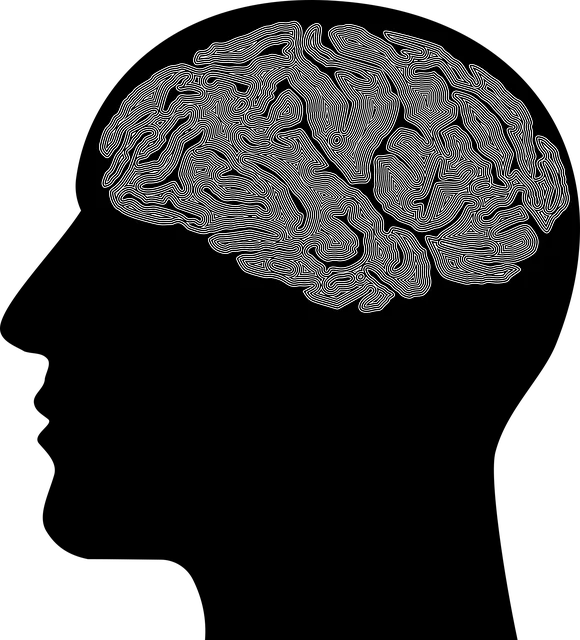Longmont Kaiser Permanente behavioral health services recognize that stress, a reaction to personal experiences and environmental factors, can cause significant health issues. They offer comprehensive solutions focusing on emotional healing, mood regulation, and resilience through evidence-based therapies like Cognitive Behavioral Therapy (CBT) and mindfulness practices. Balanced lifestyle choices, including nutrition, exercise, and sleep, are emphasized for holistic stress management, empowering patients to take charge of their mental well-being.
Stress reduction is a vital aspect of maintaining overall well-being. This article explores various methods to alleviate stress, focusing on evidence-based practices backed by Longmont Kaiser Permanente Behavioral Health Services. We’ll delve into understanding stress triggers and their impact, introducing cognitive behavioral therapy (CBT) as an effective tool. Additionally, mindfulness techniques and lifestyle changes, including nutrition, exercise, and sleep habits, will be discussed to empower individuals in managing stress effectively.
- Understanding Stress: Its Causes and Impact
- Longmont Kaiser Permanente Behavioral Health Services: An Overview
- Cognitive Behavioral Therapy (CBT): A Powerful Tool for Stress Reduction
- Mindfulness Practices for Daily Relaxation and Focus
- Lifestyle Changes: Nutrition, Exercise, and Sleep for Stress Management
Understanding Stress: Its Causes and Impact

Stress is a complex response to various internal and external factors that can significantly impact our physical and mental well-being. Longmont Kaiser Permanente behavioral health services recognize that understanding stress involves recognizing its multifaceted nature, stemming from both personal experiences and environmental triggers. These can include demanding work or school schedules, financial concerns, relationships issues, or even major life changes. The body’s natural fight-or-flight response is activated in stressful situations, leading to a cascade of physiological changes, such as increased heart rate, heightened alertness, and elevated hormone levels.
Prolonged stress can have severe consequences, affecting not just our mood but also our overall health. It can contribute to chronic illnesses, sleep disturbances, and cognitive impairments. Effective stress reduction methods, like those offered by Longmont Kaiser Permanente behavioral health services, focus on empowering individuals to manage their emotional healing processes and improve mood regulation. These strategies aim to help people develop healthy coping mechanisms, enhance resilience, and cultivate a greater sense of calm and well-being.
Longmont Kaiser Permanente Behavioral Health Services: An Overview

Longmont Kaiser Permanente Behavioral Health Services offers a comprehensive array of programs designed to promote mental well-being and address various aspects of behavioral health. Their expert team provides personalized support for individuals experiencing stress, anxiety, depression, and other common mental health challenges. With a focus on holistic care, these services cater to the unique needs of each patient, integrating evidence-based therapies with innovative approaches to burnout prevention.
The facilities emphasize mental health awareness and communication strategies as key components of healing and recovery. Through individual therapy sessions, group support meetings, and community outreach programs, Kaiser Permanente aims to foster an environment where individuals can learn coping mechanisms, build resilience, and develop sustainable strategies for managing stress. Their dedicated professionals are committed to empowering patients to take charge of their mental health journey.
Cognitive Behavioral Therapy (CBT): A Powerful Tool for Stress Reduction

Cognitive Behavioral Therapy (CBT) is a highly effective and evidence-based approach to managing stress, offered by Longmont Kaiser Permanente behavioral health services. It focuses on identifying and changing negative thought patterns and behaviors that contribute to stress and anxiety. By challenging distorted thinking and replacing it with more realistic and balanced perspectives, CBT empowers individuals to develop healthier coping strategies and improve their overall emotional well-being.
This therapeutic method is particularly beneficial for mental health professionals seeking to enhance their risk management planning. Through CBT, professionals can learn empathy building strategies that allow them to better understand and support clients dealing with stress-related issues. By integrating Emotional Well-being Promotion Techniques into their practices, these professionals can create a more supportive environment, ultimately leading to improved patient outcomes and a more fulfilling practice.
Mindfulness Practices for Daily Relaxation and Focus

In today’s fast-paced world, finding moments of calm and focus can be a game changer for managing stress. Longmont Kaiser Permanente behavioral health services emphasize mindfulness practices as an effective tool for daily relaxation and mental clarity. Mindfulness involves being fully present in the moment, paying attention to your senses and thoughts without judgment. It’s not about blocking out stressors but rather observing them with a sense of detachment, allowing you to respond rather than react to challenges.
One popular technique within mindfulness is Compassion Cultivation Practices, which encourages individuals to cultivate kindness and understanding towards themselves and others. By practicing these skills, one can enhance emotional resilience and improve mood management. Public Awareness Campaigns Development also plays a significant role in promoting mindfulness as a stress reduction method, making it accessible to a wider audience. Incorporating even short periods of mindful meditation or breathing exercises throughout the day can help individuals stay grounded, boost focus, and reduce overall stress levels.
Lifestyle Changes: Nutrition, Exercise, and Sleep for Stress Management

At Longmont Kaiser Permanente behavioral health services, we understand that managing stress is a holistic process deeply intertwined with lifestyle choices. A balanced approach to nutrition, regular physical activity, and adequate sleep forms the bedrock for emotional regulation and mental wellness. Nutritious foods provide the brain with essential nutrients, enhancing cognitive function and stabilizing moods. Incorporating at least 30 minutes of moderate exercise most days of the week boosts serotonin levels and reduces anxiety. Adequate sleep, aiming for 7-9 hours nightly, allows the body to rejuvenate and consolidate memories, thereby improving emotional resilience.
These lifestyle changes aren’t just recommendations; they’re evidence-based practices that have been shown through research to significantly improve mental health outcomes. Even implementing small adjustments in these areas can lead to substantial improvements in stress levels and overall quality of life. For those seeking more tailored guidance, Longmont Kaiser Permanente offers resources like emotional regulation techniques, mental wellness journaling exercises, and risk assessment support for mental health professionals, ensuring individuals have access to comprehensive tools for navigating stress effectively.
In navigating the intricate landscape of stress reduction, it’s clear that a multifaceted approach is key. By understanding the causes and impacts of stress, individuals can effectively utilize resources like Longmont Kaiser Permanente behavioral health services to implement powerful tools such as Cognitive Behavioral Therapy (CBT) and mindfulness practices. Moreover, adopting lifestyle changes centered around nutrition, exercise, and sleep prove instrumental in managing stress. Integrating these strategies allows for a holistic transformation, fostering resilience and enhancing overall well-being.






